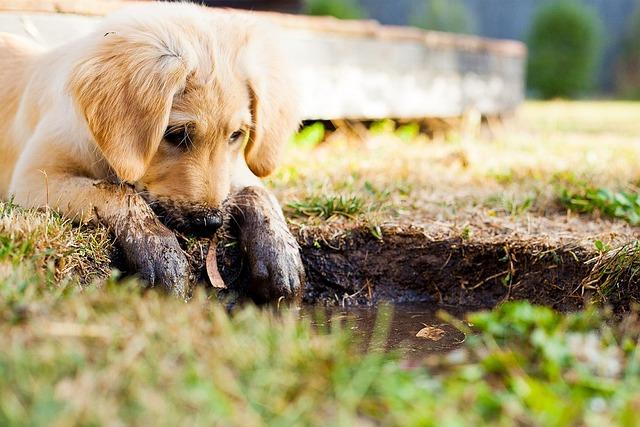Why Experts Disagree on When to Start Training a Puppy

When you bring a new puppy home, you’re embarking on a delightful journey filled with wagging tails, playful antics, and a fair share of challenges. One of the most common questions new pet owners face is: When should I start training my puppy? If you’ve sought advice from experts, you may have encountered a variety of opinions, each backed by well-meaning reasoning. This disparity can be puzzling, but understanding why experts disagree on the ideal time to begin training can empower you to make the best decision for your furry friend. In this article, we’ll explore the different perspectives, delve into the factors influencing these recommendations, and provide guidance to help you chart a successful training path for your puppy. Whether you’re a first-time dog owner or a seasoned pet parent, this insight will equip you with the knowledge to start your puppy off on the right paw.
Understanding the Science Behind Puppy Development
Grasping the intricate science of puppy development is essential for understanding the diverse perspectives on training timelines. Puppies, like human infants, undergo various stages of growth, each marked by significant cognitive and physical changes. Experts often debate the optimal time to begin training due to differing interpretations of these developmental phases. Neonatal, transitional, and socialization periods each present unique opportunities and challenges for introducing training concepts.
- Neonatal Period (0-2 weeks): During this stage, puppies are mostly dependent on their mothers, with their senses and motor skills still developing.
- Transitional Period (2-4 weeks): This is a time of rapid change, as puppies start to open their eyes and ears, becoming more aware of their surroundings.
- Socialization Period (4-12 weeks): Arguably the most critical phase for training, puppies are highly receptive to learning and social interaction.
Understanding these stages helps in appreciating why some trainers advocate for early training, capitalizing on the puppy’s natural curiosity and adaptability, while others recommend waiting until the puppy has developed further, to avoid overwhelming them. Ultimately, the goal is to align training strategies with the puppy’s developmental needs, ensuring a balanced and effective approach.

Exploring Different Training Philosophies
Delving into the diverse philosophies surrounding puppy training, you’ll find that experts often hold varying opinions, each rooted in their unique experiences and observations. Some trainers advocate for early socialization, emphasizing the critical period between 8 to 16 weeks when puppies are most receptive to new experiences. This approach focuses on gradually introducing puppies to various environments, people, and other animals to build confidence and reduce future anxiety.
- Positive Reinforcement: Emphasizes rewarding good behavior with treats or praise.
- Clicker Training: Uses a clicking sound to mark desired behavior, followed by a reward.
- Relationship-Based Training: Focuses on building a strong bond between the puppy and owner.
On the other hand, some experts recommend waiting until the puppy is a bit older, suggesting that maturity aids learning. This perspective highlights the importance of letting puppies develop naturally and ensuring they are emotionally ready for structured training. Regardless of the approach, the common thread remains the need for patience, consistency, and love in nurturing a well-behaved companion.

Tailoring Training to Your Puppys Unique Needs
Every puppy is an individual, brimming with its own personality, energy levels, and learning style. Recognizing this uniqueness is key to developing a training plan that truly resonates with your furry friend. Here are a few factors to consider when tailoring training to your puppy’s specific needs:
- Breed Characteristics: Different breeds have varying temperaments and energy levels. While a Border Collie might thrive with agility training, a Basset Hound might prefer scent-based activities.
- Personality Traits: Is your puppy shy or bold? Independent or eager to please? These traits can influence the type of training methods that will be most effective.
- Learning Pace: Just like humans, puppies learn at different speeds. Some might grasp commands quickly, while others may require more patience and repetition.
By focusing on these aspects, you can create a nurturing environment that not only encourages learning but also strengthens the bond between you and your puppy. Remember, a personalized approach is often the most rewarding path to a well-behaved companion.

Tips for Navigating Expert Advice
When navigating through expert advice, it’s crucial to approach it with an open mind and a discerning eye. Here are some strategies to help you make the most out of the varied opinions:
- Evaluate Credentials: Consider the expert’s background, education, and experience in the field. A veterinarian might offer different insights compared to a seasoned dog trainer, but both perspectives are valuable.
- Identify Underlying Principles: While specific methods may vary, try to discern the core principles that experts agree upon. This can help you form a foundational understanding and adapt techniques to suit your puppy’s unique needs.
- Stay Open to New Ideas: The field of animal behavior is constantly evolving. Stay updated with the latest research and be willing to adjust your approach as new insights emerge.
By using these strategies, you can better navigate the diverse world of expert opinions and find a balanced approach that works for both you and your furry friend.



